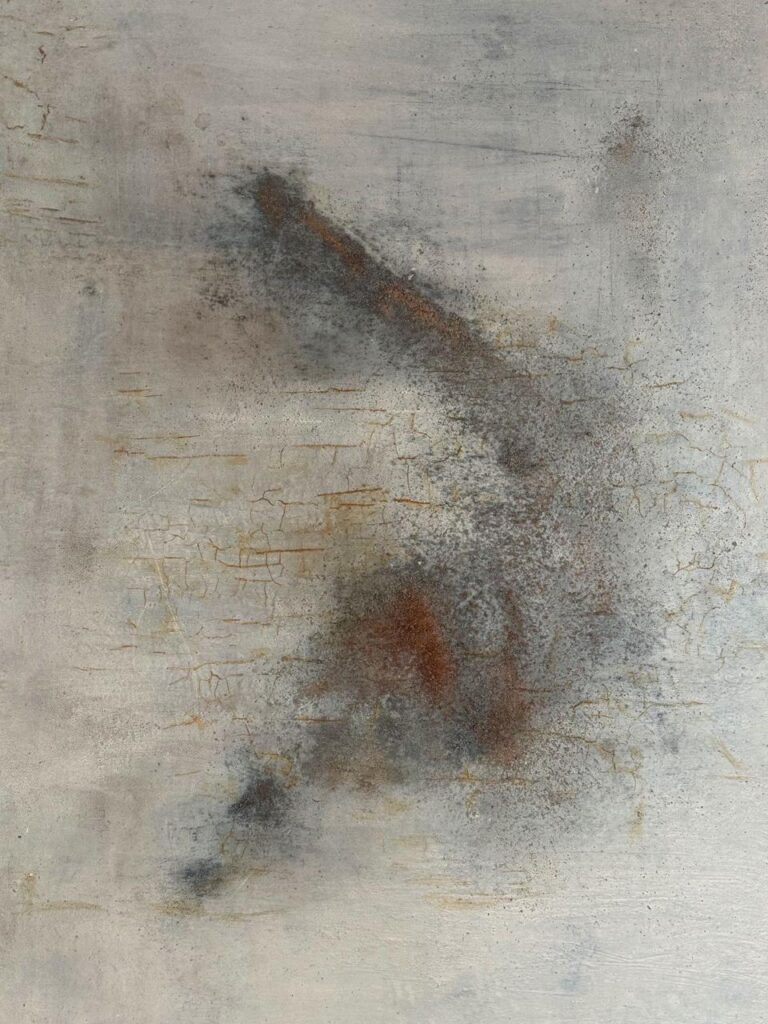War and Peace
Translated by Kamal Mirawdeli
Painting: Tama Taib

In war the light in my mother's eyes disappears, the lamps in my homeland go blind and the long beautiful hair of the songs grow white one hair after another When war with its nasty noisy shrill knocks at the door from the outside inside, the spring flowers turn pale the sparrows start to groan and a shiver chillier than ice penetrates the soul of my pen; nightmares and monsters enter the sweet colorful dreams of my child When War walks across our roads with its heavy filthy threatening feet the stars fall their own spring waters are poisoned the streets' knees break and the steps freeze When War announces its victory then no guest will turn up to share the late evening simple warm hospitality of poverty no partner will whisper his secrets to fire-flies and shake head of satisfaction after hearing a poem no one will listen to songs. In war at midnights an ugly alien storm finds its way to my room and burns all the words of Nali and Mawlewi poems one by one tears onto shreds the first primary school book of my child spreads poison over the garden of my morning expectations strangles the sonnets of Beethoven the First Dawn Mame Sewa the flute of Darvish Abdulla and the poems of Shamlo, Aragon and Goran. In War a goblin intrudes my home at midday kidnaps my baby with his cot steals the cute schoolbag of my child chops off the hair of my sweetheart deforms the face of my mother bites deep into the black and white photos of my childhood When War breaks out there will be to say "Good morning", "Good evening" and you lose the hope to have a date with a poem in a calm evening under a hairy willow tree. When War starts, the hands go numb the pens break the pianos go on strike the flutes go dumb Only in peace the dreams grow wings to fly and turn up as guests in the warm nights of homeland. In peace the poor in my homeland sit tight in the colorful cottage of future hopes and the dreams of their children overwhelm with toys, mirrors and doves. Only in the presence of the deep melodies of torrents of peace the fish can understand each other the sea understands the sorrow of the coast and whisper sleeps in the warm lap of intimate thoughts Only in peace one across the breadth of the sky look at the future of homeland hold arms with mountains and listen to the simple concerns of a village In peace the roads overwhelm with the sweet noise of childhood and the cries of babyhood walking up the simple stars of early life In peace the electric posts restore life breeze scratches itself against the fresh spirit apple trees In peace the midnight love without any feeling of fear listens in the darkness of the other end of the street to the pink intimacies of a stranger star Only in peace homeland can fly To embrace the green forest of future War means no strangle shade to abort water to demolish beauty and neighborhoods War is exercise losing losing everything the self-esteem, dignity and freedom of man the laughter, the mumbling and first steps of children War is the practice of death, destruction and murder the murder of lamps, paintings and colors the murder of pains, wishes and desires War means waiting in ambush to hunt freedom to hunt people to hunt God War means to open the door for the flood of suspicion means giving permission to monsters to devour everything: history language, culture, literature blood of martyrs anthems, uprisings, and maternal passion War means letting everything go with the wind Going with the wind of words manners and sacrifices War means a bitter practice of vanity vanity of politics, of mottos and colorful slogans To defend peace means to protect that beautiful and kind worriless world which is lying in a corner of the eyes of the children of homeland To defend peace means not to disturb the summer midday snooze of childhood under the dense shade of a mulberry tree It means to seal the mouth of The guns with songs It means to humiliate and expose Hatred and learn "Dara du darai di" again
Notes:
Nali and Mewlei are two Kurdish classic poets.
The First Dawn is the name of a song – melody by the famous Kurdish folk singer Sewe.
Darvesh Abdulla was a legendary Kurdish flutist eternalized in a beautiful poem by the Kurdish modernist poet Goran
“Dara du dari di” meaning Dara saw two trees is the first line in the first lesson in the first book of reading for 1st primary school children.